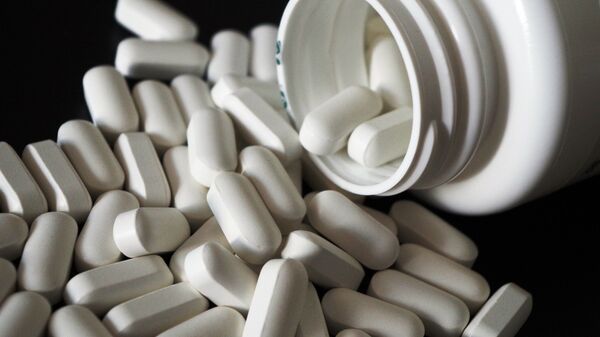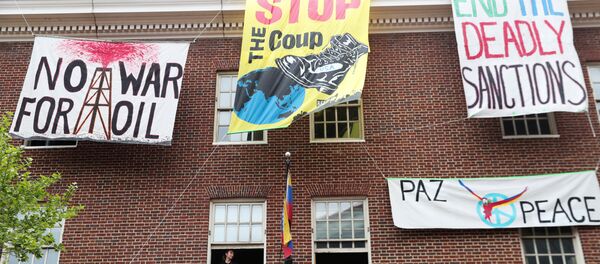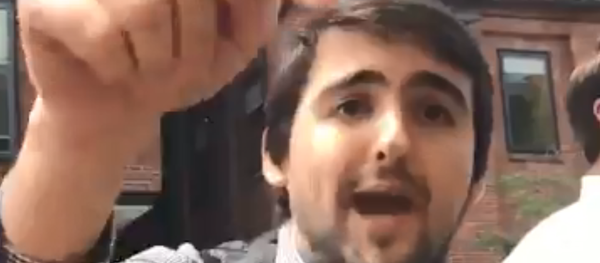Isabella was born with a congenital disease and doctors immediately warned that she required a liver transplant to survive. Her parents, Douglas and Yelibeth, addressed the issue straight away: donor, funding, where, how and when the transplant will be performed.
It wasn't so difficult. Yelibeth was a match and could be her daughter's donor, and all the treatment was covered by the Simon Bolivar Foundation, a charity funded by the US subsidiary of Venezuela's state-run oil company PDVSA — Citgo.
READ MORE: Protesters March on White House to Decry US Seizure of Venezuelan Embassy
The agreement between the Italian Hospital of Argentina and Venezuela has been in force since 2007, and 109 Venezuelan children have undergone organ transplants under this programme during this period. High-skilled specialists of the Italian hospital have been conducting transplantation surgeries for 12 years.
Douglas and Yelibeth left everything behind in Venezuela and in September 2018, without worrying about the political situation in the country, moved to the capital of Argentina. Their eldest son Abraham, who's 12 years old, went to school in Buenos Aires.
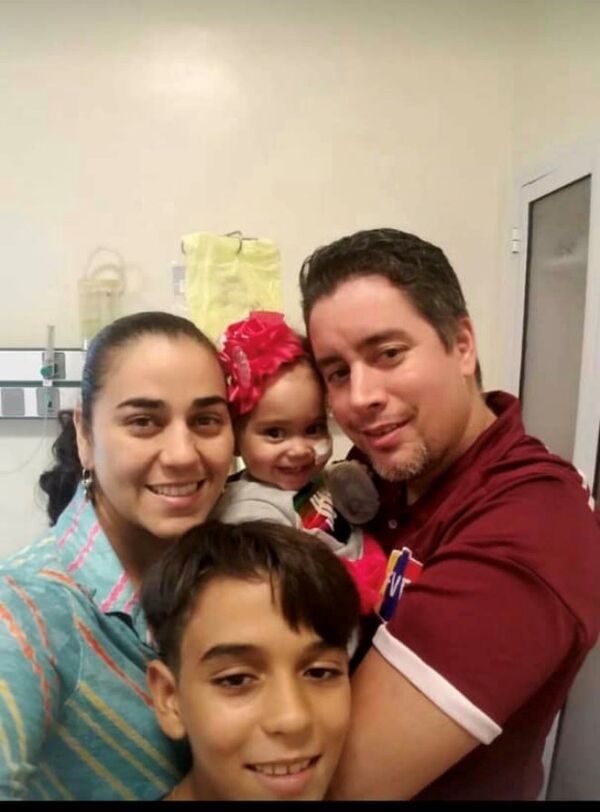
Everything went well. On 26 November, a liver transplant was successfully performed. After that, Isabella spent a month and a half in intensive care with minor complications.
On 9 January, she was finally discharged from hospital, but doctors warned that the postoperative period would be difficult. The new organ had to show that it was functioning well. The little girl had six months to a year of treatment ahead of her.
However, on 28 January, the US Treasury announced the introduction of new and tougher sanctions against Venezuela, and this time against Citgo, which financed the foundation helping ill children. The charity's funds had been blocked.
Money should be deposited into a blocked account and transferred to the new government according to US Treasury Secretary Steven Mnuchin. However, 4 months have passed, and there is no "new government", and there is no money for Isabella and the seven other families.
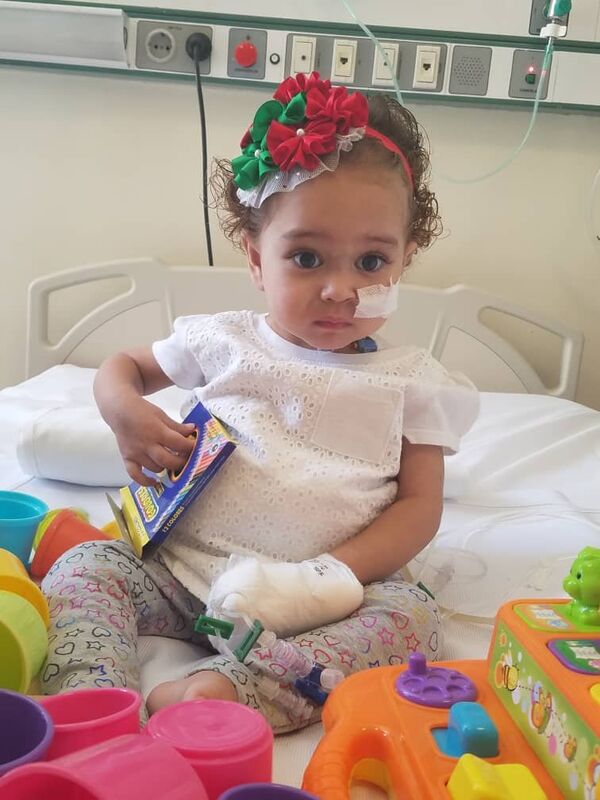
The money is no longer flowing, and the Italian hospital cannot perform anymore transplants. The Embassy of Venezuela in Argentina is providing all possible assistance.
"The hospital gives us a roof over our heads, and the embassy provides financial assistance, but we don't know how much longer we can last like this," Douglas said.
He is 34 years old, and quit his job as an administrator at a Venezuelan company in order to devote himself to taking care of his daughter.
"My daughter needs strict control to properly complete the treatment. Currently her body is showing a slight rejection, and this can only be controlled with medication," Douglas explained.
The foundation provided them with all necessary medication up until the United States blocked its funds. Isabella needs 16 types of different pills, each costing more than $1,500 per pack. An ordinary family just can't afford it. For now, there is enough medicine to last another month.
"If Isabella doesn't follow the postoperative regime, she can lose the new organ and will need another operation. We will have to start from scratch, and it will be much more difficult because my wife can no longer be a donor. We don't have that much time," her father said.
The blockade is used in Venezuela as a military weapon. This is an old tactic. Whoever wins the media battle will determine the reality. A recent report by the Washington-based Center for Economic and Policy Research (CEPR) presented an alarming statistic: US sanctions against Venezuela were responsible for 40,000 deaths in the country in 2017-2018.
"The sanctions are depriving Venezuelans of lifesaving medicines, medical equipment, food, and other essential imports" the report titled "Economic Sanctions as Collective Punishment: The Case of Venezuela" says.
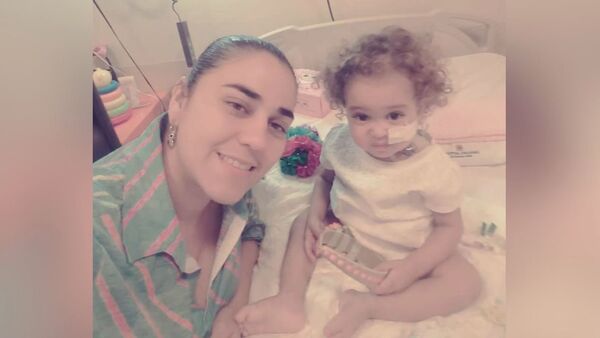
80,000 people with HIV, 16,000 cancer patients and 4 million with diabetes and hypertension are victims of these sanctions, which the report calls "illegal under international law."
"From a human rights perspective, the illegal economic and financial blockade imposed by the US government is the main obstacle in ensuring respect for and observance of human rights in Venezuela," said Larry Devoe, executive secretary of Venezuela's National Council on Human Rights and representative of Venezuela to the International Human Rights System.
He closely follows the case of Isabella and other families with similar problems. "Only in Caracas there are at least 12 people who received a go-ahead for a bone marrow transplant. They were going to fly to Italy for an operation, but couldn't go because of the sanctions," he explained.
People who criticise the government of Nicholas Maduro are certain that it's not the sanctions that are causing food and medicine shortages in Venezuela, since the problem existed even before the United States imposed them.
In his turn, Antony Moreno, doctor and spokesman for the Committee of patients and relatives of the victims of the financial blockade, said that this is wrong.
"We conducted a series of studies, and from 2013 to 2015, when Maduro was already in power, but before the introduction of the first round of sanctions, each Venezuelan was able to take up to 20 different types of drugs in the event of illness. Even the UN confirmed that Venezuela had met its Millennium Development Goals (MDGs)," he said.
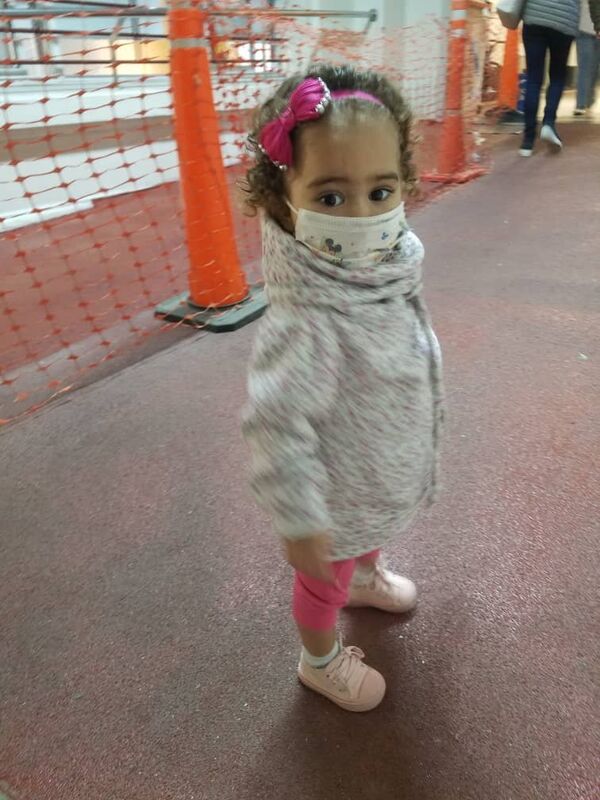
"But everything changed when the opposition won the National Assembly in 2015 and demanded sanctions against Venezuela," Moreno added.
"That's practically nothing. The damage inflicted is enormous. I work in the field of occupational health and see the difference since 2015," Moreno explained.
Venezuela imports all "vital" drugs for the treatment of cancer, cardiovascular diseases, hypertension, HIV, and other illnesses. In Venezuela there are no level 1 laboratories, that is, those that work with raw material.
Venezuela has always imported medication from foreign laboratories using foreign currency from oil sales. When that money was blocked, there were no more funds to buy medicine with.
READ MORE: Venezuela Willing to Begin Dialogue With US on Basis of Mutual Respect, FM Says
People are fighting against the situation by organizing protest rallies and distributing the few drugs they receive or produce. Currently, Douglas, Isabella and other families are able to continue their treatment thanks to the Simon Bolivar Foundation and various social funds that support them in Argentina.
"Foreign Minister Jorge Arreaza has asked to hold on. But for how long?" Douglas wants to know. Douglas doesn't talk about politics, because the situation in which he finds himself in, as well as hundreds of others and their families, has nothing to do with Chavism or anti-Chavism, revolution or political marketing.
"The blockade is not a political issue. The blockade is directed against us. It hurts us, in this case my daughter, not Nicolas Maduro or government officials. I'm afraid of what could happen. What happens if my daughter loses the organ which was transplanted?" he asked.
The views and opinions expressed in this article do not necessarily reflect official position of Sputnik

